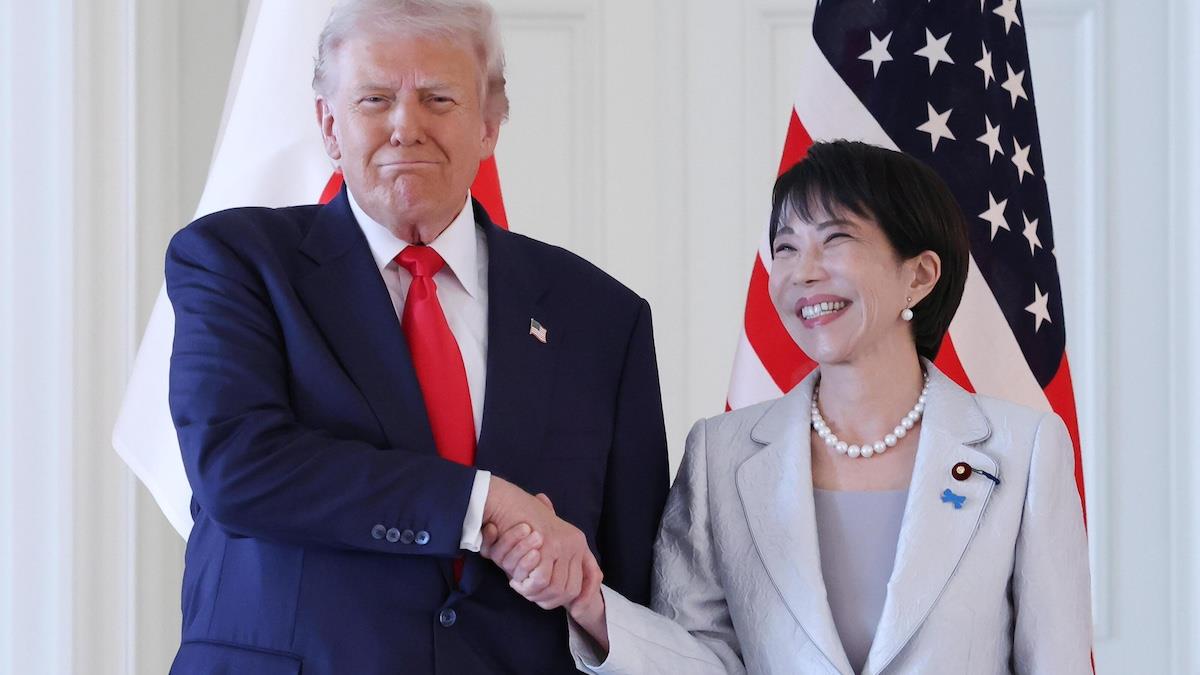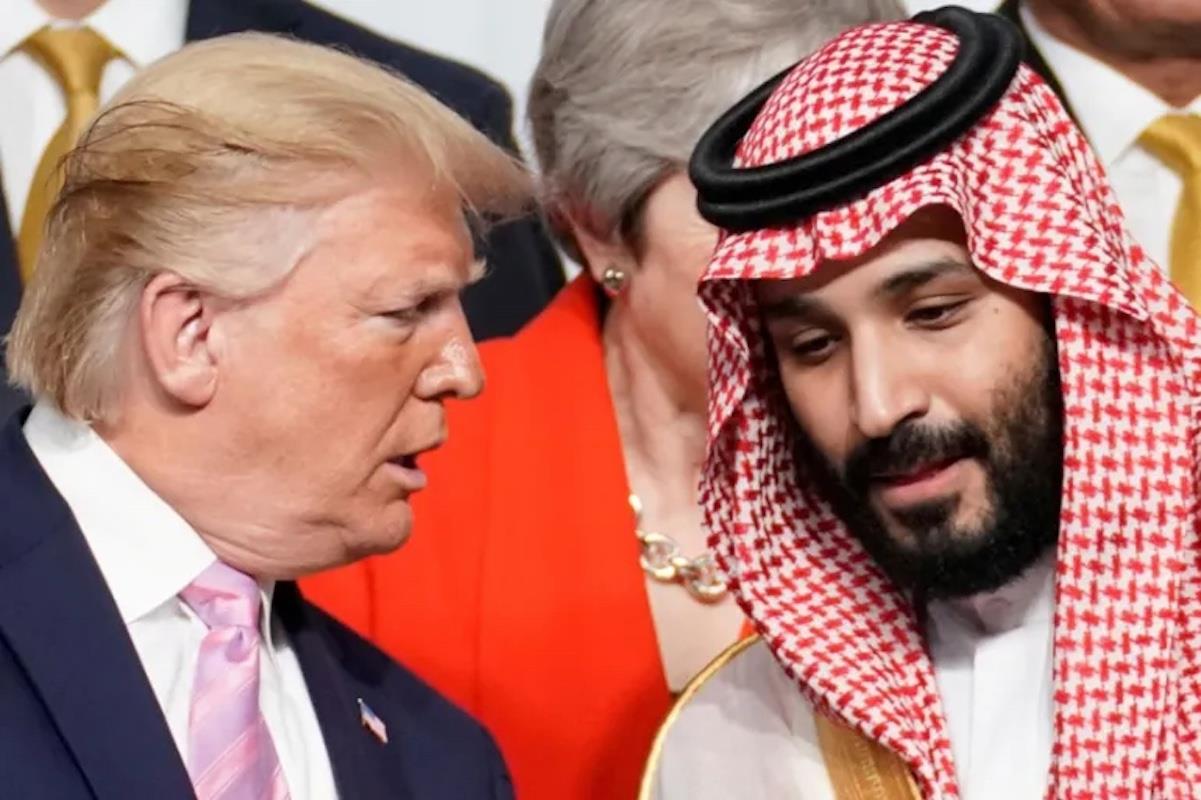
Time For US To Ditch Its Saudi Alliance
Yet like a couple staying together“for the kids,” both parties have long since moved on, pursuing separate interests while maintaining the fiction of partnership. It's time to acknowledge what should be obvious: the strategic rationale for this alliance has evaporated, and clinging to it serves neither American interests nor the cause of regional stability.
The traditional justifications for the relationship-oil security, counterterrorism cooperation and containing Iran-have become either obsolete or counterproductive. The United States is now a net energy exporter, fundamentally transforming the calculus that once made Saudi oil fields central to American grand strategy.
The shale revolution accomplished what no amount of diplomatic maneuvering could: it freed Washington from energy dependence on an authoritarian kingdom whose values and interests increasingly diverge from our own.
Meanwhile, Riyadh has made clear through its actions that it no longer views Washington as an indispensable patron. The Kingdom's coordination with Russia through OPEC+ to manipulate oil prices-often against American preferences-represents a fundamental breach of the implicit bargain that underpinned the relationship.
When Saudi Arabia and Russia cut production to boost prices just as the Biden administration sought relief for American consumers, it wasn't merely an economic decision. It was a strategic signal that Riyadh's interests and Washington's are no longer aligned.
The most striking evidence of this drift is Saudi Arabia's courtship of China. Beijing now purchases a quarter of Saudi oil exports and has brokered diplomatic breakthroughs-such as the Saudi-Iranian detente-that Washington either couldn't or wouldn't pursue.
Latest stories
US-China tech empires in a race to cement supremacy

Trying to discern a strategy behind Trump's global adventuring

Israeli military dumps Chinese cars
The Saudis are conducting their foreign policy in yuan as much as dollars, exploring alternatives to the petrodollar system that has been a cornerstone of American financial hegemony. This isn't betrayal; it's diversification. Riyadh is behaving as any rational actor would in a multipolar world.
Yet Washington persists in pretending nothing has changed. We continue to sell advanced weapons systems to the kingdom, providing military technology that may one day be used against American interests or end up in Chinese hands for reverse engineering.
We overlook the humanitarian catastrophe in Yemen, where Saudi-led coalition forces have killed thousands of civilians with American-made weapons. We downplay the murder of Jamal Khashoggi, a US resident and journalist, because confronting Riyadh over such“internal matters” might upset the relationship.
But what relationship, exactly, are we protecting? The one where Saudi Arabia refuses to normalize relations with Israel without extracting maximum concessions from Washington-including a formal defense treaty that would commit American blood and treasure to defending a regime that shares neither our values nor, increasingly, our interests? The relationship where Riyadh lectures Washington about human rights while imprisoning dissidents and executing them at record rates?
The counterargument from the foreign policy establishment is predictable: abandoning Saudi Arabia will push it further into China's arms and destabilize the region. This is the same logic that kept the United States entangled in Afghanistan for two decades and committed to“stability” in Iraq. It's a counsel of inertia masquerading as strategy.
In reality, the US-Saudi relationship has become a subsidy program-not for Saudi security, which the Kingdom is perfectly capable of purchasing on the global arms market, but for American defense contractors and the foreign policy consultants who rotate between think tanks and Gulf-funded advisory positions. The institutional interests invested in maintaining this alliance are substantial, but they are not synonymous with American national interests.
A genuine realist approach would acknowledge several uncomfortable truths. First, Saudi Arabia will remain stable or unstable regardless of American security guarantees; its fate depends primarily on oil prices, internal succession politics, and its ability to navigate regional rivalries-none of which Washington can control.
Second, China's growing involvement in the Gulf is a natural consequence of its economic interests, not a failure of American diplomacy. Beijing buys Saudi oil; we don't need it anymore. Third, the supposed binary choice between American hegemony and Chinese dominance in the region is false. Multiple powers can have interests in the Gulf without one monopolizing influence.
What would a rational recalibration look like? It would begin with honest acknowledgment that the relationship has become transactional rather than strategic. Washington should sell weapons to Riyadh on commercial terms, without the pretense of alliance obligations. We should cooperate on specific issues of mutual interest-counterterrorism intelligence, freedom of navigation-without the broader strategic framework that no longer exists.

Sign up for one of our free newsletters
-
The Daily Report
Start your day right with Asia Times' top stories
AT Weekly Report
A weekly roundup of Asia Times' most-read stories
More importantly, we should stop letting the US-Saudi relationship constrain our broader Middle East policy. The alliance has distorted our approach to Iran, Yemen, and the Israeli-Palestinian conflict. It has compromised our credibility on human rights and democratic values. And it has entangled us in regional feuds-Saudi Arabia versus Qatar, Saudi Arabia versus Turkey-that serve no American purpose.
The irony is that stepping back from this dysfunctional relationship might actually produce better outcomes. Without unconditional American backing, Saudi Arabia might pursue more pragmatic regional policies.
It might settle its differences with Iran through diplomacy rather than proxy wars. It might focus on economic diversification-the much-touted Vision 2030-rather than adventurism in Yemen and Lebanon.
The US-Saudi relationship served its purpose during a different era, when American dependence on Middle Eastern oil and Soviet ambitions in the region created genuine shared interests.
That era is over. Pretending otherwise doesn't serve American interests; it serves the narrow interests of those who profit from the status quo. It's time to acknowledge the divorce, wish each other well and pursue relationships based on current realities rather than nostalgic fantasies about partnerships that no longer exist.
A truly conservative foreign policy-one that conserves American power and resources-would recognize that not every relationship is worth maintaining at any cost. Sometimes the most strategic thing to do is let go.
This article was originally published on Leon Hadar's Global Zeitgeist and is republished with kind permission. Become a subscriber here.
Sign up here to comment on Asia Times stories Or Sign in to an existing accounThank you for registering!
An account was already registered with this email. Please check your inbox for an authentication link.
-
Click to share on X (Opens in new window)
Click to share on LinkedIn (Opens in new window)
LinkedI
Click to share on Facebook (Opens in new window)
Faceboo
Click to share on WhatsApp (Opens in new window)
WhatsAp
Click to share on Reddit (Opens in new window)
Reddi
Click to email a link to a friend (Opens in new window)
Emai
Click to print (Opens in new window)
Prin

Legal Disclaimer:
MENAFN provides the
information “as is” without warranty of any kind. We do not accept
any responsibility or liability for the accuracy, content, images,
videos, licenses, completeness, legality, or reliability of the information
contained in this article. If you have any complaints or copyright
issues related to this article, kindly contact the provider above.


















Comments
No comment